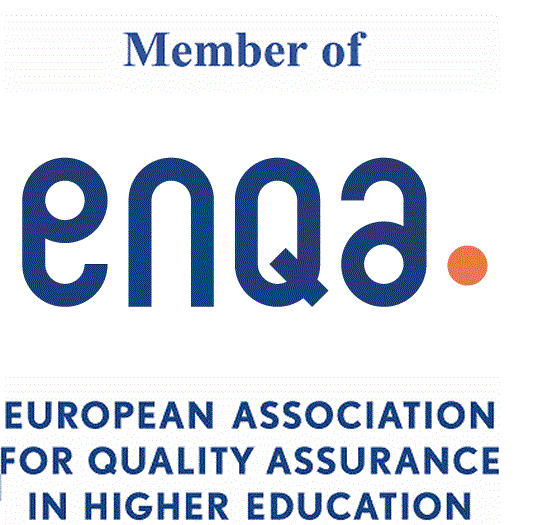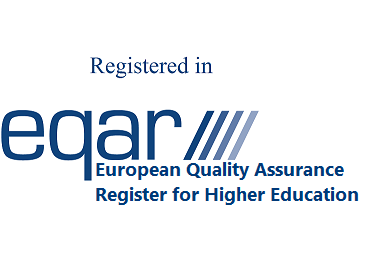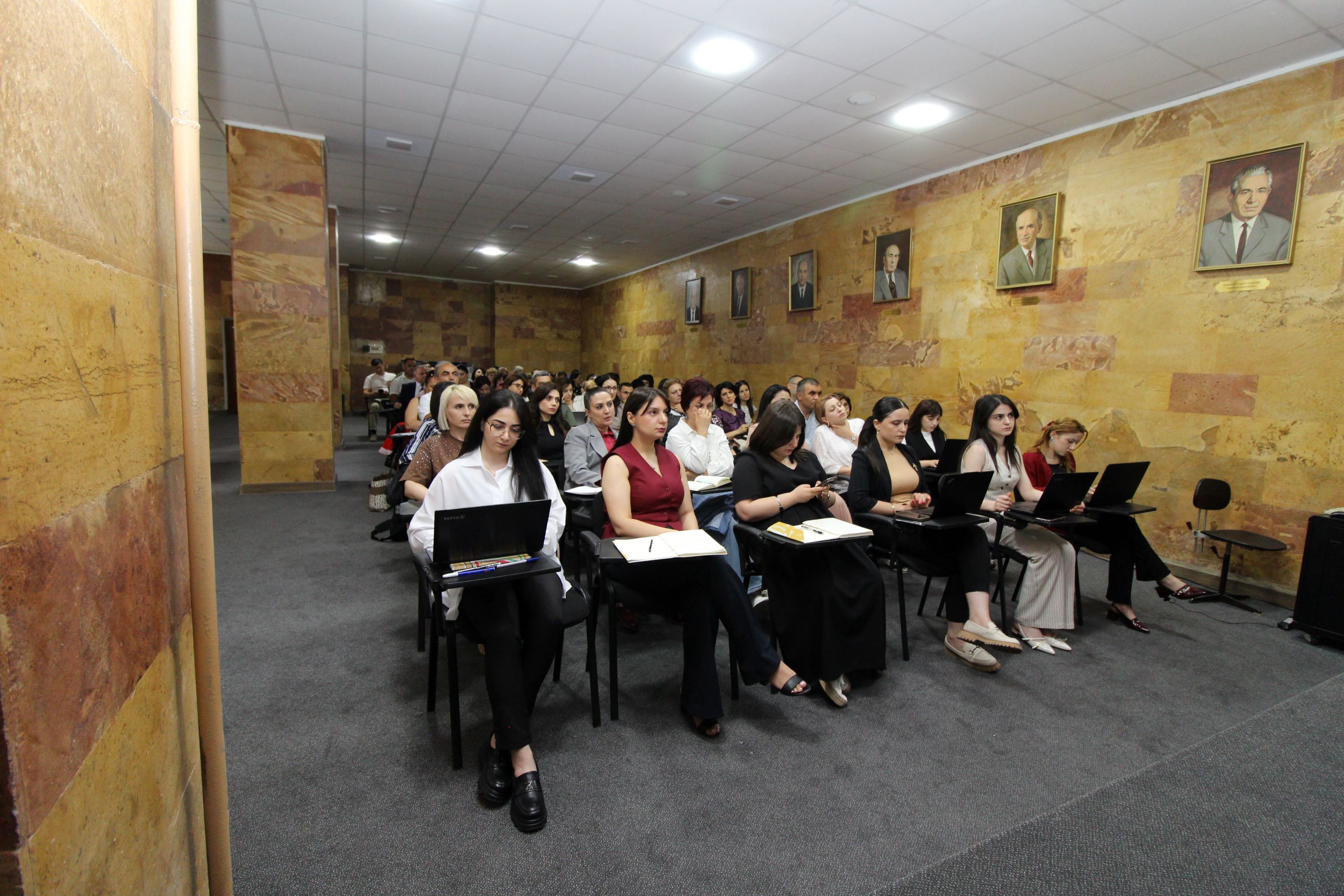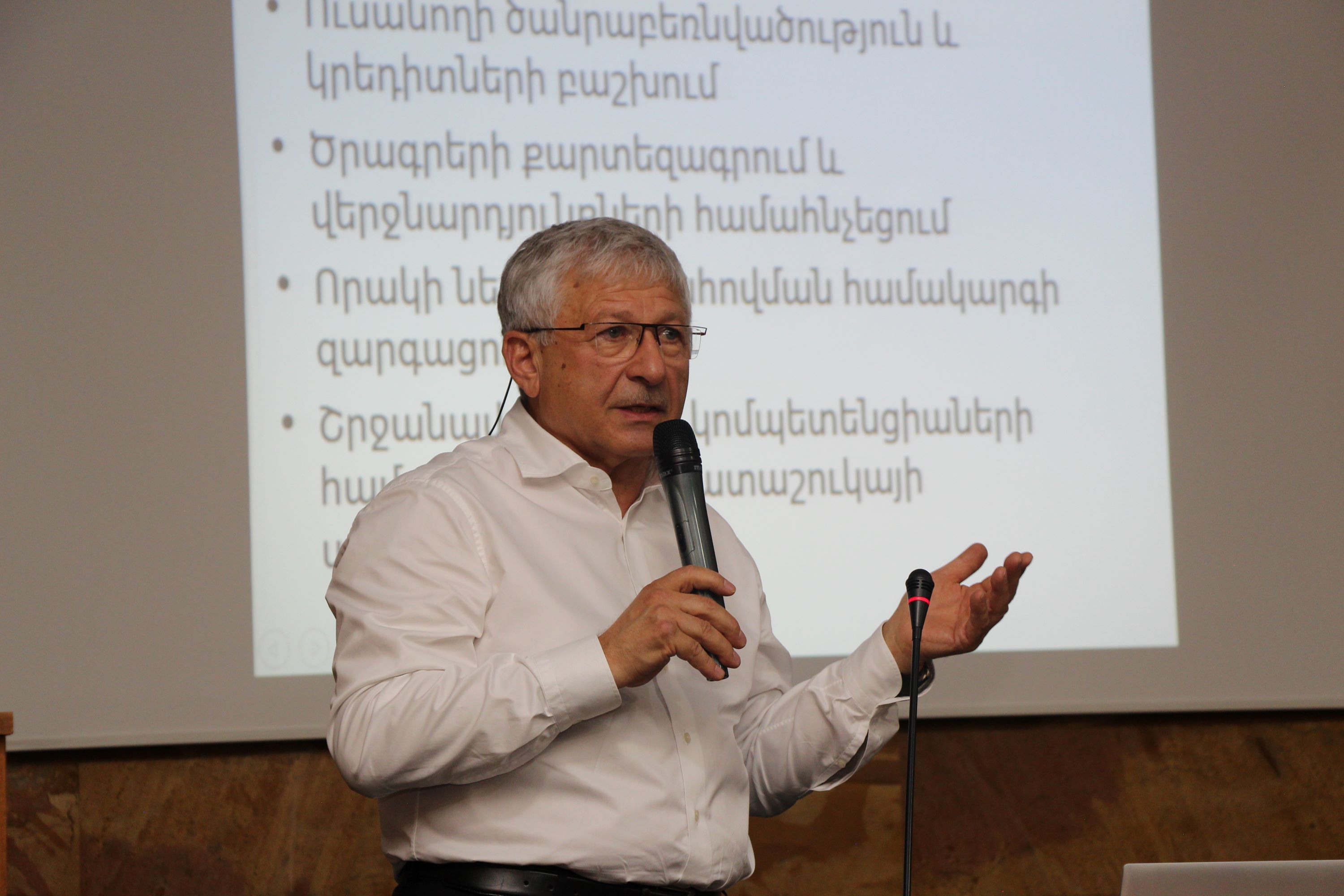Self-audits of academic programmes (APs) and progress reports help record success and progress, offering a chance to identify best practices and showcase achievements. On July 3, ANQA’s discussion focused on the identification and dissemination of best practices in the country.
By the decision of ANQA’s Accreditation Committee, the HEIs granted institutional accreditation should perform a self-audit of all APs prior to their next accreditation. ANQA regularly holds discussions on the template and results of self-audits with the participation of representatives from HEIs, fostering the exchange of practice and the enhancement of processes.
In his speech, Ruben Topchyan, ANQA’s director, highlighted that self-audits should serve not only to pinpoint issues, but also to share the completed work, achievements and progress. Dr. Topchyan stressed that the HEIs should study the effectiveness of analysing the extent to which the learning outcomes are reflected in the educational process and whether the assessment tools align with these outcomes. The HEIs are expected to identify and share the changes resulting from the self-audit process, ensuring transparency and accountability for all stakeholders.
Discussions with the HEI representatives included key areas for the AP enhancement:
- the AP development and revision;
- the student workload and credit distribution;
- the mapping of APs and alignment of outcomes;
- the developments in the internal quality assurance system;
- the alignment of alumni’s competencies with the labour market requirements.
The Yerevan State University introduced its self-audit practice in the AP "Biology". It was noted that an international expert participated in the process, and benchmarking was conducted against six leading HEIs included in the Shanghai rankings. As a result of the benchmarking, revisions were made to the curricula, thematic content, credit load, proportions of practical and laboratory work, as well as the literature list.
The Educational Complex of the Ministry of Internal Affairs of the Republic of Armenia presented the self-audit practice in the "Patrol" qualification. International experts from Ukraine and Georgia took part in the audit process. Following the programme revision, its duration has been extended from five to twelve months. The programme is planned to have a two-year duration by 2027. The Educational Complex has introduced new components, practical and simulation resources, and set up specialised classrooms for skill development.
At the end of the meeting, it was agreed that ANQA will continue to hold workshops on the best practices in the self-audit audit process of the APs, offering the HEI representatives the opportunity to share their activities, challenges and achievements in this area.




